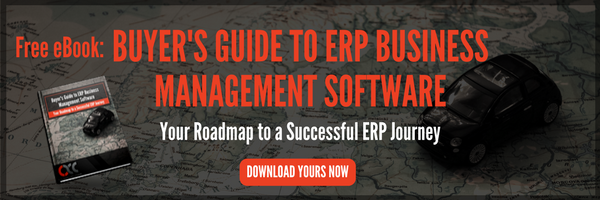When planning an ERP implementation project, it’s important to consider how long the project is going to take and assess any potential roadblocks along the way. ERP implementation projects can take anywhere from a couple of months to a couple of years for full completion or go-live. Typically, the inconsistency is dependent upon the size of an organization, the complexity of the ERP system being installed, expected concurrent users, and the size of data migration. However, there are many other reasons for a delayed implementation timeline such as lack of communication and/or budget. Embarking on an ERP implementation project with unrealistic expectations is the number one reason for implementation failure. Setting ERP project plans with genuine goals and achievement dates is critical for a successful ERP implementation project.
To keep an ERP implementation project on time and on budget, communicate with your ERP partner, consultant and/or Value Added Reseller (VAR) / implementation service provider. Communication between an organization and their VAR should remain consistent throughout the project implementation to establish a clear project timeline with goals and objectives. Key Performance Indicators (KPI) need to be translated into project milestones on an ERP implementation project timeline as clearly defined measurable goals. ERP implementation projects, like many other projects on a similar scale, will never be wrinkle free. With that being said, incorporate countless trial runs and testing phases into the project plan to anticipate any potential roadblocks and preempting future issues by fine-tuning the system configuration prior to the go-live date.
This post is an excerpt from our ERP Buyer’s Guide. Download it now and discover the Roadmap to a Successful ERP Journey.
Contact one of our support specialists to get your ERP project started!

Solutions by Industry
What's New
Building a Smarter Business with Acumatica in 2026
Read MoreSubmitted by Stephanie Dean on Thu, 02/19/26 - 10:53
ERP Trends Driving Digital Transformation
Read MoreSubmitted by Stephanie Dean on Mon, 02/16/26 - 12:59
Preparing for Your Acumatica 2025 R2 Upgrade
Read MoreSubmitted by Stephanie Dean on Tue, 02/10/26 - 15:06